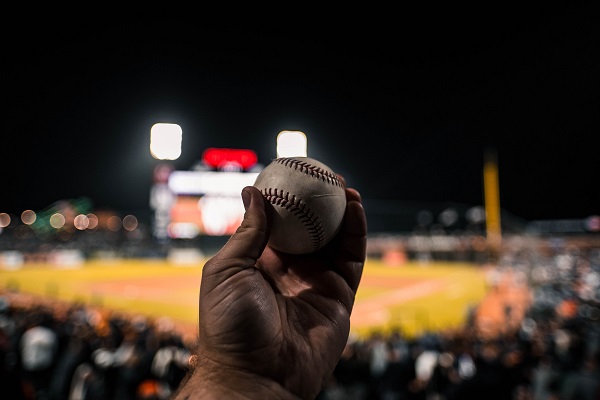Ambidextrous by birth, professional baseball player Pat Venditte was able to pitch about equally well with either hand.
And he had a special six-fingered glove that he could use to catch with using either hand.
This gave him an advantage in that he could switch his pitching hand depending on the handedness of whatever hitter he was facing.
All other things being equal, a right-handed batter would prefer to face a left-handed pitcher, and a left-handed batter would prefer to face a right-handed pitcher.
So when facing a right-handed batter, Venditte would pitch right-handed. When facing a left-handed batter, he would pitch left-handed.
He was the game’s first ‘switch pitcher.’
This was never an issue until a game in 2008. Venditte was on the mound when switch hitter Ralph Henriquez came up to bat. Over the course of several minutes, Henriquez kept switching between the two batter’s boxes, and Venditte kept switching between his two pitching hands, each trying to get an advantage over the other.
After several more minutes of discussion, during which it became clear that the Rules of Baseball — baseball’s version of the Constitution — did not have anything to say about the situation, the officials made a decision: They made Henriquez choose a box to bat from, and then Venditte could choose a hand to pitch with. And the game was able to continue.
Many people were amazed that in a game as old and as popular as baseball, it could be possible to come up with a situation that no one had ever seen before.
But to me, the most remarkable thing about the situation is that the ruling by the officials did not create a rule that any other officials were bound to follow. It was left to the Rules Committee — baseball’s version of Congress — to decide how this kind of situation should be handled in the future.
(That committee, by the way, came up with a rule that differed from the ruling on the field. From now on, they said, it’s the pitcher who has to choose a hand to pitch with before the at-bat begins, and then the batter can react accordingly. This gives the advantage to the batter. It would be more fair, I think, to make them play rock-paper-scissors before each at-bat, but it’s not up to me.)
And it’s remarkable because it provides such a perfect model for how judges should act in our courts.
Consider the case of Francois Momolu Khalil, who was convicted of raping a woman in Minnesota. On appeal, the Minnesota Supreme Court found that, for technical reasons, while Khalil’s actions were reprehensible, they were not consistent with the statutory definition of rape, so his conviction was overturned.
The outcry was immediate. Almost everyone seemed to think that the conviction should stand because, obviously, the legislature meant for the definition of rape to cover Khalil’s actions, and so the court should have just declared that what the law meant was different from what it said.
But the Justices said that it wasn’t their job to rewrite statutes from the bench… especially when the words of the statute would remain unchanged.
Which is exactly how it should work. But it’s so rare for this to happen that it was shocking — bordering on incomprehensible — to most people.
It’s clear to everyone in MLB that the rules committee has all rule-making power so that it can make rules. On the other hand, the officials in a game have only the power to make rulings that apply at a particular moment. These rulings don’t set precedents. They aren’t binding on anyone. They just allow the current game to continue without affecting what happens in other games.
That is, it’s the job of the officials to see that, to as great an extent as possible, the game is played in accordance with the rules as they have been written down.
Contrast this with how our judges operate, especially in appeals courts. They may decide, for example, that limiting the number of rounds you can carry in a magazine is not an infringement on the right to keep and bear arms. From then on, that is the law, regardless of what the relevant constitutions — our government’s versions of the Rules of Baseball — have to say about it.
In a nutshell, the officials in baseball are there to enforce the rules as created by the rules committee, and to do that, they may issue rulings that do not become new rules. n contrast, the judges in our courts believe they are there to make up new rules on the fly — even when those are in blatant conflict with the rules as written down in constitutions and statutes.
In particular, with the part of the Constitution that clearly and unambiguously assigns all legislative power to Congress… and no legislative power to the courts themselves.
All of which is to say, our courts should learn from our sports.
